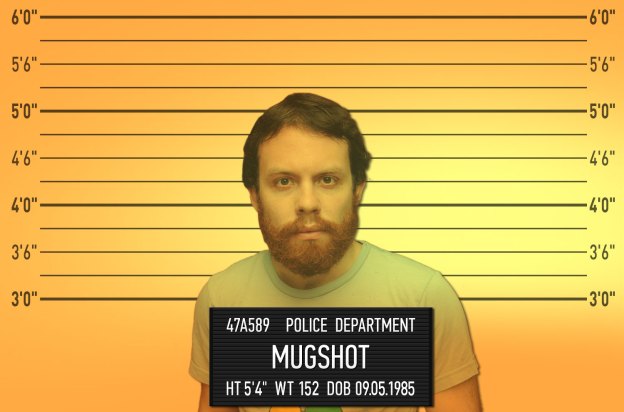
Follow-up: After an insightful reader discussion surrounding the actions and prosecution of Andrew “Weev” Auernheimer sparked by this piece, I’ve written a follow-up column, “Andrew Auernheimer is not Aaron Swartz,” to clarify my stance.
Infamous Internet troll Andrew “weev” Auernheimer received a 41-month sentence in federal prison on Monday for violating an anti-computer hacking law. The penalty stems from 2010, when the so-called “iPad hacker” revealed a security hole that allowed him and his partner, Daniel Spitler, to snag 114,000 120,000 iPad users’ email addresses from a publicly available AT&T website. The duo then told Gawker about their exploits, which publicized the exposed iPad user data, embarrassed AT&T, and eventually led to Monday’s legal obliteration.
The conviction of Auernheimer comes less than a week after Reuter’s deputy social media editor, Matthew Keys, was indicted for allegedly helping Anonymous hackers deface an article in the Los Angeles Times. According to the FBI, Keys provided the hackers with a username and password to the newspaper’s network, apparently in exchange for access to their private IRC chat room. Keys potentially faces decades in prison and $750,000 in fines.
The technology revolution is over. The other guys won.
Problem is, ridding ourselves of CFAA is far from the only fight technology users have hanging on their necks. And I can’t shake the feeling that we’ve already lost. The technology revolution is over. The other guys won.
There was a time not so long ago when the Internet felt like an entirely new universe, free of the constraints and rules of the “real world.” Alas, this was never the case – the powers that be were, it seems, simply playing catchup. Any freedom we may have felt was simply an illusion. And the events listed above have blown any lingering fantasy we may have had out of the sky.
Today, we tech users face bombardment from all sides. In addition to the CFAA, we have the privacy-violating Computer Intelligence Sharing and Protection Act (CISPA) making its way through Congress once again. We have copyright laws that make it a federal crime to unlock the cell phones we buy without permission from wireless carriers. And we have national security-related laws that let shadowy entities like the National Security Agency spy on virtually everything we do online.
When the watchdogs of liberty warn us about choked free speech, this is what they mean.
Thanks to the DOJ’s prosecution of Auernheimer, Keys, and Swartz, the rest of us feel afraid to use the amazing tools at our disposal, in case we upset the wrong crowd. Throughout my time with Digital Trends, I have corresponded with everyone on that list, in one capacity or another. I have lent my support to the same causes, chatted with the same groups online. And while I can’t claim to know a single one of them personally, in light of the events of the past few months, I can’t help but think that I too appear on a list in some dim Washington D.C. office. When the watchdogs of liberty warn us about choked free speech, this is what they mean.
Of course, I am not Andrew Auernheimer or Aaron Swartz. I have not “hacked” AT&T, given out passwords to Anonymous, or broken into a server closet at MIT to liberate millions of academic articles. I have not rustled the feathers of the rich and powerful. I am not a threat. And the prosecution of these men, all of whom are nearly my age, further ensures that I, and maybe you, never will be.
This resulting fear to speak one’s mind strikes at the very foundation on which our democracy is supposedly built. It is a blow against the belief that the Internet and all its capabilities provide any of us with any real power that we lacked before we jumped online. Instead, it has given those who wish to maintain the status quo more power to do so – by tracking our activities, reading our emails, locking our phones, and collecting our tweets. The very thing that was supposed to set us free has only snapped on more shackles. And right now, I can’t for the life of me see how we can shake them. Please, tell me I’m wrong.


